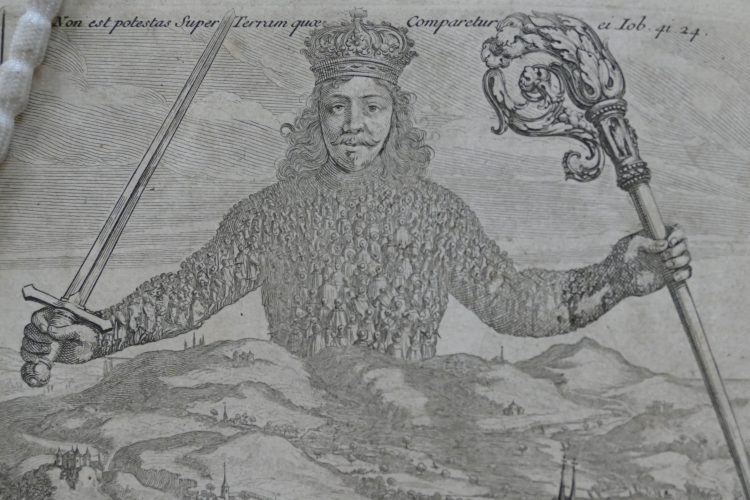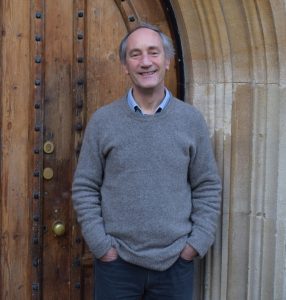Censorship and Information Control
28 Apr 2020|Nicholas Davidson
- Research

Undergraduate historians in Oxford generally (I hope) enjoy their studies. But one element in the syllabus that some find uncongenial is the Finals paper usually known as ‘Disciplines’: an off-putting title, admittedly, and one that conveys little about its purpose. For the ‘Disciplines’ paper is intended to encourage them to think comparatively: to take an aspect of the past – slavery, for example, or crime – in two or more different periods or cultures, and to ask why it might have taken different forms at different dates and in different places.
For the past couple of years, I have participated in a similar comparative exercise run from the University of Chicago. This brings together people from a wide range of disciplines and occupations – historians, anthropologists, and literary scholars, for example, as well as lawyers, publishers, journalists, and political activists – to consider censorship in all parts of the world from the development of the printing press in the fifteenth century to the digital revolution of our own time. So I have recently been reading and studying well beyond my usual research area on sixteenth- and seventeenth-century Italy – the territory where modern practices of copyright and book censorship were first instituted – and asking myself what the later history of information control can teach me, and what my expertise can teach students of later periods.
In broad terms, we can identify three major turning points in the history of human communication: the invention of writing, the development of print, and the creation of the internet. Each one enabled individuals to record what they had learned or thought and pass it on to an ever larger number of readers who lived far away and in a later age. Other developments, such as the telephone, film, and broadcasting, had similarly furthered this dissemination of information and ideas even before the internet. And as the reach of these means of communication expanded, so did the concerns of those who feared that their interests – legitimate or otherwise – might be affected or damaged by that information and those ideas. The urge to exercise control over communication thus also increased as the opportunities for individual and group expression grew.
Arguments in support of free expression have been widely accepted in many modern societies. In England, John Milton was an early advocate: ‘who ever knew Truth put to the wors, in a free and open encounter’, he asked in his Areopagitica in 1644. John Stuart Mill argued in 1859 that ‘there ought to exist the fullest liberty of proclaiming and discussing … any doctrine, however immoral it may be considered’. The effective functioning of the democratic methods of government familiar to us in the UK do indeed depend on the open exchange and contest of competing ideas. And Section 43 of the Education (No.2) Act of 1986 states clearly that ‘Every individual and body of persons concerned in the government of [universities] shall take such steps as are reasonably practicable to ensure that freedom of speech within the law is secured’, and ‘that the use of any premises of the establishment is not denied to any individual or body of persons on any ground connected with … the beliefs or views of that individual or of any member of that body’.
In practice, however, freedom of expression has almost always been limited. In pre-modern Europe, political and religious authorities believed that they knew what was true, and had a duty to prohibit anything they believed was false. As a result, Protestant states and churches banned the publication of Catholic texts, and Catholic states banned the publication of Protestant texts. Following the Great Plague of London in 1665-6, Nathaniel Hodges – a physician with some rather unconventional views on medicine – argued that anyone who had spread ‘groundless Reports’ about the epidemic should be treated as traitors – an approach followed last month by a Hungarian government decree that threatens anyone spreading falsehoods about Covid-19 to five years in prison. More recently still, YouTube has said that it will ban all videos suggesting that symptoms associated with the disease are caused by 5G.
And there have been plenty of arguments that truthful statements should also be prohibited. It is generally accepted that accurate reports of state secrets that might endanger national security should not be published; and that open assertions of views about religion should be banned if they risk inciting violent reactions among those who oppose or those who support those opinions (more than 250 people were killed worldwide in the demonstrations following the publication of cartoons depicting the Prophet Muhammad in a Danish newspaper in 2005). The publication of extreme forms of pornography – including films and videos – is also frequently banned: depictions of child abuse were declared exempt from the protection of the First Amendment of the US Constitution by the Supreme Court in 1981, for example. And despite Section 43 of the Education (No.2) Act of 1986, British legislation now requires universities to prohibit or cancel events at which speakers might express views – however truthfully and accurately – that are thought to be in ‘opposition to fundamental British values’.
It has never been easy to prevent the free expression of unwelcome views, and the internet now allows almost everyone to publicize their opinions online. But while it is almost impossible for most governments to exercise an effective control over the digital world, the behemoths of that world, such as Google and Facebook, now largely control what is or is not published. The rulers of the sixteenth and seventeenth centuries would have been astonished at that shift in power.
Category: Research
Author

Nicholas
Davidson
Professor Nicholas Davidson’s research is focused mainly on southern Europe and the Mediterranean, with a special interest in the social, religious, and cultural history of Italy in the sixteenth and seventeenth centuries.